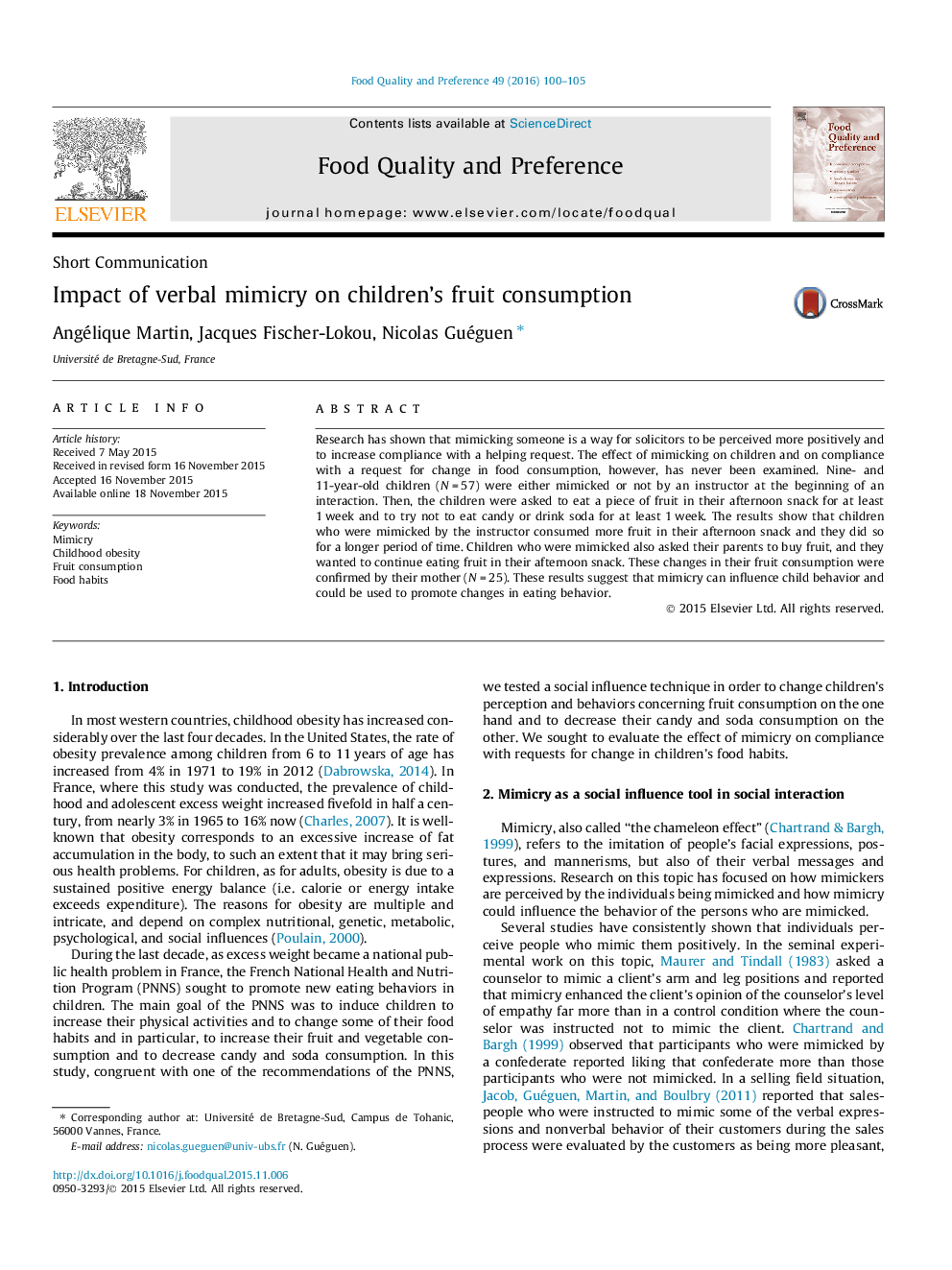| Article ID | Journal | Published Year | Pages | File Type |
|---|---|---|---|---|
| 6261260 | Food Quality and Preference | 2016 | 6 Pages |
â¢Nine and 11 years children participated in a survey focusing on their preferences for fruits and vegetables.â¢The interviewer mimicked or not the verbal content of the children.â¢Mimicked children have consumed more fruit immediately and after 9 days.
Research has shown that mimicking someone is a way for solicitors to be perceived more positively and to increase compliance with a helping request. The effect of mimicking on children and on compliance with a request for change in food consumption, however, has never been examined. Nine- and 11-year-old children (NÂ =Â 57) were either mimicked or not by an instructor at the beginning of an interaction. Then, the children were asked to eat a piece of fruit in their afternoon snack for at least 1Â week and to try not to eat candy or drink soda for at least 1Â week. The results show that children who were mimicked by the instructor consumed more fruit in their afternoon snack and they did so for a longer period of time. Children who were mimicked also asked their parents to buy fruit, and they wanted to continue eating fruit in their afternoon snack. These changes in their fruit consumption were confirmed by their mother (NÂ =Â 25). These results suggest that mimicry can influence child behavior and could be used to promote changes in eating behavior.
